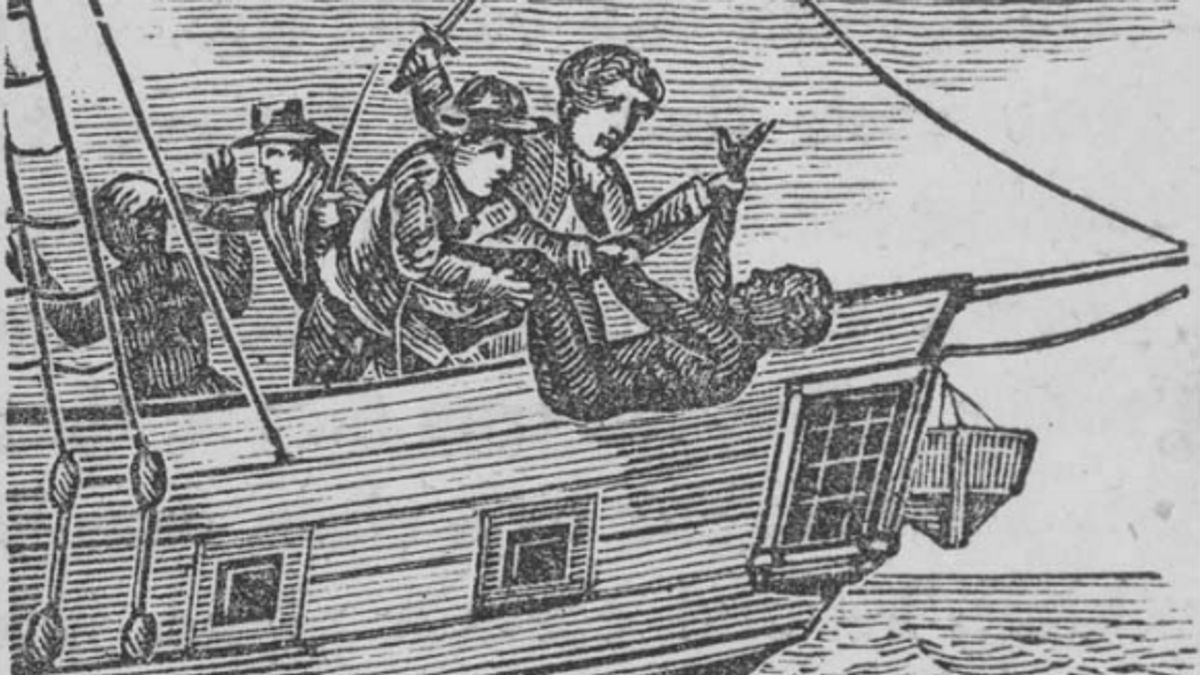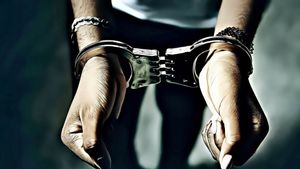JAKARTA - The massacre on the slave ship, Zong, was an incident that killed at least 130 slaves (some say 142 people) in 1781. They were deliberately thrown into the sea for the reason of "safety". However, the British royal law at that time seemed to make this practice legal, they were even more concerned with the pros and cons of this event.
Zong is one of the meanest shipping ships ever. The owner of this ship is a Liverpool merchant syndicate, William Gregson. Apart from being a slave trader, he was mayor of Liverpool in 1762.
Gregson transported slaves between the 1747 and 1780s. But what is cruel is not only the slave traders. But the law itself, which is arguably the practice of buying and selling slaves business.
It all started when Zong left West Africa in 1781. They brought 442 slaves from Africa to sell on colonial plantations in Jamaica.
Zong ship is usually crowded. But at that time it seemed that the load was even more, they were carrying double the number of people they used to carry.
There are two versions of the reason why the murder of 133 slaves who were thrown overboard could have occurred. First, because the carrying capacity exceeds capacity, causing a shortage of water supply, then the second is due to disease outbreaks.
Legalization of slaveryA trial for the Zong Massacre case was held. Initially, the reason for Zong's party to throw slaves into the sea to save the crew from lack of water was accepted by law. The act was deemed customary by the London Court.
The Chief Justice on this day, June 22, 18th century or in 1783, declared that the slaughter of African slaves "was as if a horse had been thrown on a ship," he was quoted as saying by History. The trial did not search for who carried out the massacre but instead devoured the question of whether the slave was insured or not.
According to Jeremy Krikler in "A Chain of Murder in the Slave Trade: A Wider Context of the Zong Massacre" (2012), Zong's argument states that the dumping of slaves into the sea in order to save other crew members, made their insurance claims liquid. So, not the punishment they get after killing, but insurance money.
Not satisfied with the verdict, opponents of the slave trade delved deeper into the case. Until they discovered the fact that some of the murders took place after the rain. That means the water supply can be reclaimed and they are not in short supply.
Krikler believes that this massacre was related to the issue of profit and loss. All these abominations were committed solely for the sake of money. "It has become a tally of profit and loss when he chooses people to dump overboard, (they) think that insurance can be claimed on those who are killed," he said.
The English, Chinese, Japanese, Arabic, and French versions are automatically generated by the AI. So there may still be inaccuracies in translating, please always see Indonesian as our main language. (system supported by DigitalSiber.id)










